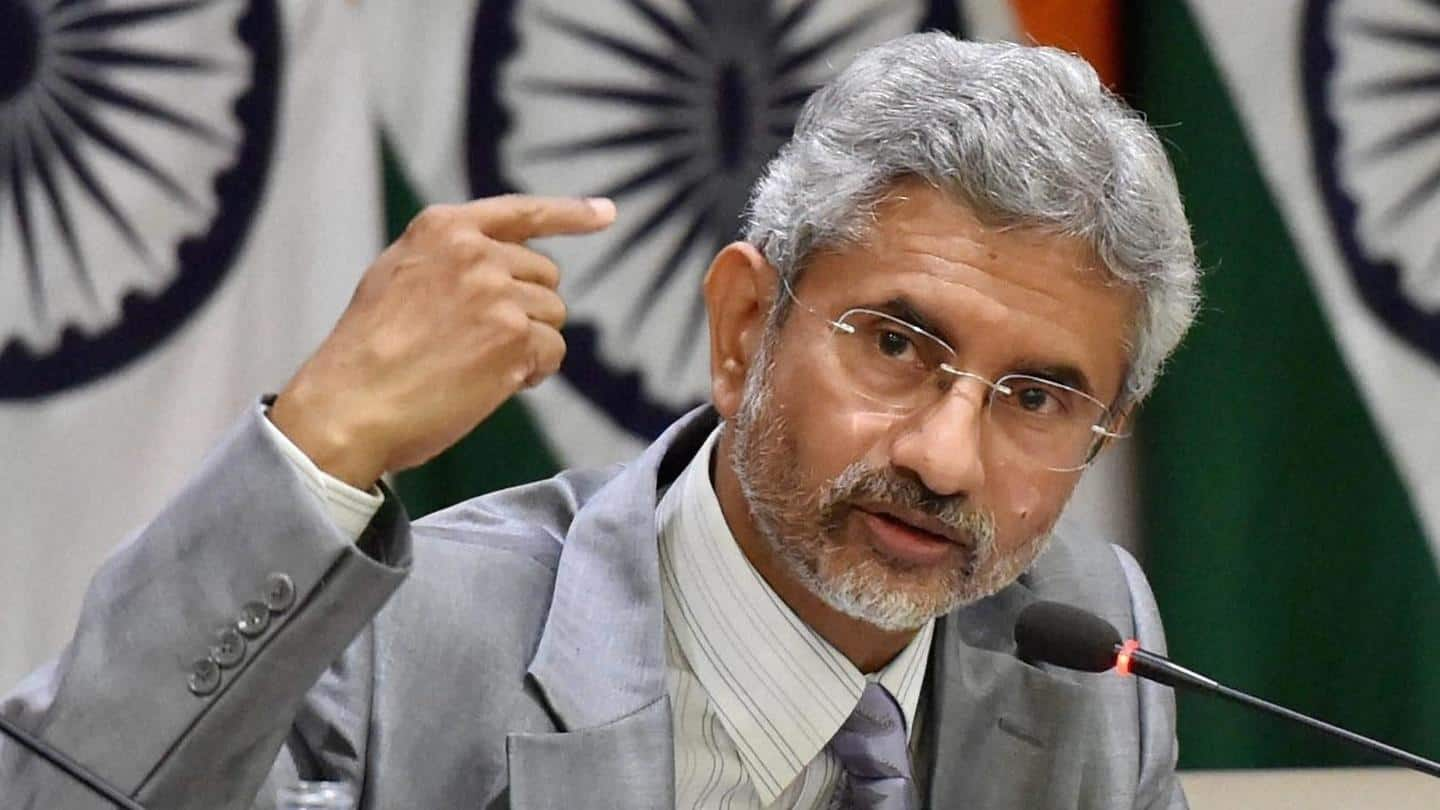
SAARC must overcome cross-border terror; obstruction in trade, connectivity: Jaishankar
What's the story
Cross-border terror, blocking connectivity, and obstructing trade are the key challenges that the South Asian Association for Regional Cooperation (SAARC) must overcome, Minister of External Affairs S Jaishankar said on Thursday at an informal virtual meeting of SAARC Foreign Ministers held on the sidelines of the UN General Assembly (UNGA).
The SAARC includes India, Pakistan, Afghanistan, Bangladesh, Bhutan, the Maldives, Nepal, and Sri Lanka.
Details
'Cross-border terrorism, blocking connectivity, obstructing trade three key challenges'
In a series of tweets detailing the contents of his speech at the meeting, Jaishankar wrote, "Cross-border terrorism, blocking connectivity and obstructing trade are three key challenges that SAARC must overcome. Only then will we see enduring peace, prosperity, and security in our South Asia region."
The Foreign Ministers' meeting is an annual event held on the sidelines of the UNGA in New York.
Twitter Post
You can view Jaishankar's tweet here
Cross-border terrorism, blocking connectivity and obstructing trade are three key challenges that SAARC must overcome.
— Dr. S. Jaishankar (@DrSJaishankar) September 24, 2020
Only then will we see enduring peace, prosperity and security in our South Asia region.
Speech
SAARC's efforts hampered by acts of terrorism, says Jaishankar
In his speech, Jaishankar said that SAARC has made significant progress in the past 35 years, but their efforts toward collective collaboration and prosperity have been hampered by "acts of terrorism and threats to national security."
He said that the SAARC must "collectively resolve to defeat the scourge of terrorism, including the forces that nurture, support, and encourage it."
India-Pakistan
SAARC functioning stalled due to tense Indo-Pak ties
Jaishankar's pointed remarks are apparently referencing Pakistan. Notably, the SAARC process had gotten stalled after India called for Pakistan's "diplomatic isolation" following the Uri terror attack in Jammu and Kashmir in 2016.
India had then boycotted the 2016 SAARC Summit, hosted by Pakistan. SAARC has largely remained dormant since.
India has repeatedly accused Pakistan of promoting cross-border terrorism in J&K.
Information
In March, Modi called for united SAARC fight against COVID-19
When the coronavirus pandemic took over, Prime Minister Narendra Modi in March called upon the SAARC nations to initiate a joint effort to tackle the disease. He had also announced the creation of a SAARC COVID Fund at the time.
Jaishankar’s remarks
Jaishankar highlighted how India has helped SAARC neighbors
During Thursday's meeting, Jaishankar also emphasized India's support for other SAARC members, such as the extension of $150 million, $200 million, and $400 million foreign currency swap support for the Maldives, Bhutan, and Sri Lanka, respectively.
He also mentioned that India facilitated the return of its neighbors' citizens stranded in other nations, along with its own, via repatriation flights amid the pandemic.
Other nations
Pakistan expresses willingness to hold 19th SAARC Summit
Foreign Ministers from Pakistan, Maldives, Bhutan, Sri Lanka, and Afghanistan also took part in the virtual meet which was hosted by Nepal.
During the meeting, Pakistan Foreign Minister Shah Mahmood Qureshi expressed the nation's "willingness to host the 19th SAARC Summit and for obstacles created in its way to be removed for SAARC to function as an effective instrument of regional cooperation."
Quote
Unilateral measures altering disputed territories counter SAARC's objective: Qureshi
Qureshi tweeted, "Highlighted need to condemn & oppose unilateral/illegal measures to change the status of disputed territories in violation of UNSC resolutions. Such unilateral measures run counter to a shared objective of #SAARC to create regional amity and cooperation & must be opposed resolutely."